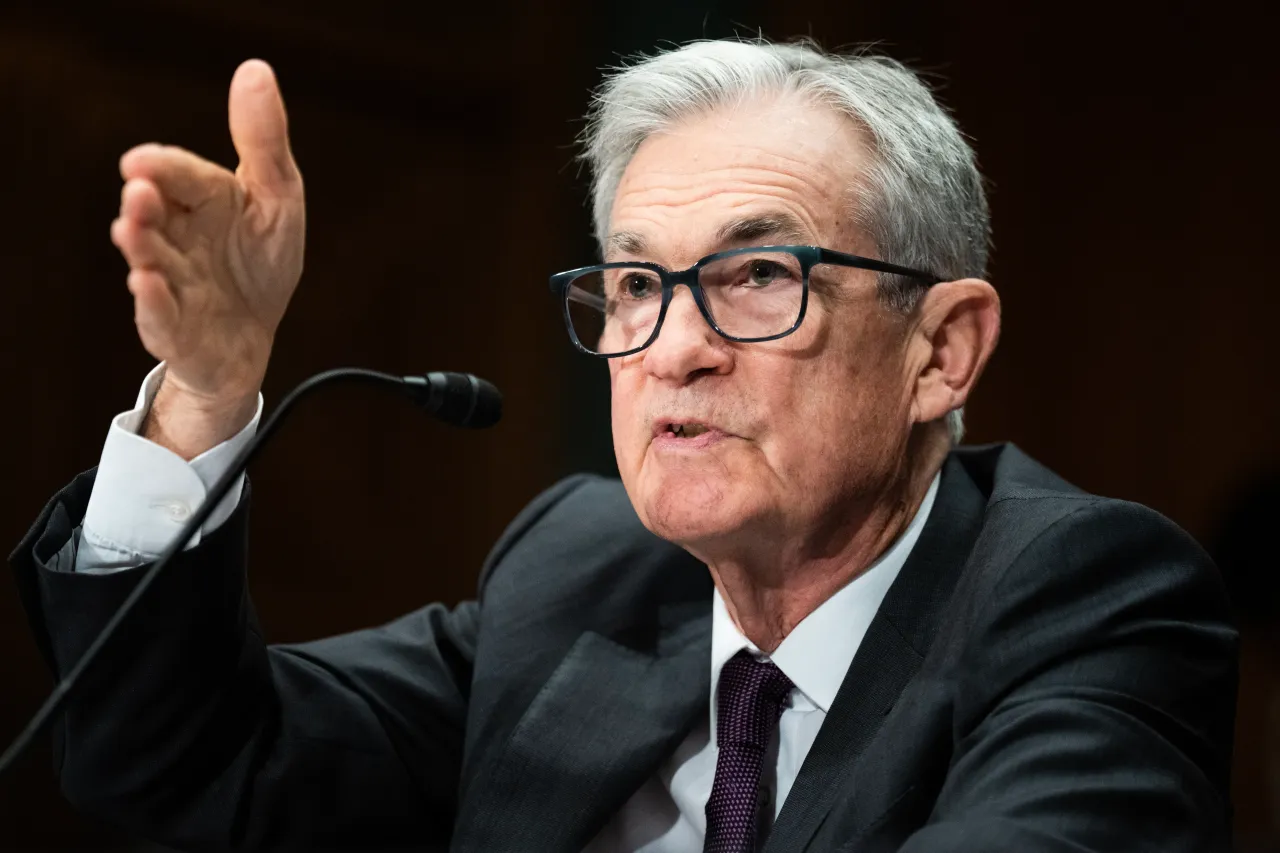Advertisement|Remove ads.
Powell Says Fed HQ Renovation Aligns With Plan After Trump’s White House Alleges ‘Lavishness’

Federal Reserve Chairman Jerome Powell on Thursday vigorously defended the spending toward the renovation of the central bank’s Washington, D.C. headquarters.
Replying to a letter sent by White House Office of Management and Budget (OMB) Director Russell Vought last week, Powell said the Federal Reserve Board has taken great care to ensure the project is carefully overseen since it was first approved in 2017.
The project has been subject to budget approval each year by the board since then, he said in a letter. Additionally, an independent Inspector General (IG) has had full access to project information on costs, contracts, schedules, and expenditures.
Powell said he had asked for a fresh review of the project by the IG following an audit conducted in 2021.
He also emphasized the need for an overhaul of the two historic buildings on the National Mall, given that they were first constructed in the 1930s, and the periodic maintenance work done since then has not amounted to a comprehensive renovation.
Powell clarified that the project is proceeding in accordance with the plan that the National Capital Planning Commission (NCPC) approved in September 2021. Since the plan was approved, only a small number of design changes were made to scale back or eliminate certain elements, and no new elements were added, he said.
Since the changes weren’t substantial, the board thinks further NCPC review is warranted, the central bank chief said.
Powell also gave a point-by-point reply to some queries raised by Vought in his letter.
The Trump-Powell tiff has frequently led to market volatility in the past. Despite multiple headwinds, the market has pushed ahead and is currently trading at a record high.
The Invesco QQQ Trust (QQQ), an exchange-traded fund (ETF) that tracks the Nasdaq 100 Index, has gained over 10% this year, while the SPDR S&P 500 ETF (SPY) added nearly 8%.
The misgivings between Powell and the Trump administration had their origin in the former’s reluctance to lower the Fed funds rate in the wake of data showing a let-up in pricing pressure and a softening of the economy.
Powell and his fellow hawkish Monetary Policy Committee members have based their stance on the uncertainty regarding tariffs that have the potential to stoke inflationary pressures.
The president and his officials have been calling for the resignation of Powell, incidentally a Trump appointee, since April, when the tariff turbulence hit Main Street and Wall Street.
As recently as this week, Trump reportedly asked House Republicans whether he should fire Powell, showing them a draft letter in this regard. While stating that all GOP Congressmen favored sacking the Fed chief, the president said he, however, was conservative and wouldn’t fire Powell.
Treasury Secretary Scott Bessent said earlier this week that Powell should step down from the Fed’s board when his term as chairman expires in May 2026.
For updates and corrections, email newsroom[at]stocktwits[dot]com.














/filters:format(webp)https://news.stocktwits-cdn.com/large_Getty_Images_2263571605_jpg_f769289486.webp)
/filters:format(webp)https://news.stocktwits-cdn.com/Anushka_Basu_make_me_smile_in_the_picture_b92832aa_af59_4141_aacc_4180d2241ba8_1_2_png_1086e0ed8c.webp)
/filters:format(webp)https://news.stocktwits-cdn.com/large_Getty_Images_2233719278_jpg_46dfac21ee.webp)
/filters:format(webp)https://news.stocktwits-cdn.com/large_Getty_Images_2263454468_jpg_23f4595a31.webp)
/filters:format(webp)https://news.stocktwits-cdn.com/large_Getty_Images_2264020227_jpg_4d7420bef3.webp)
/filters:format(webp)https://news.stocktwits-cdn.com/large_Getty_Images_2259210190_jpg_d48bbe3269.webp)
/filters:format(webp)https://news.stocktwits-cdn.com/large_Getty_Images_1396534113_jpg_b0e09f299b.webp)